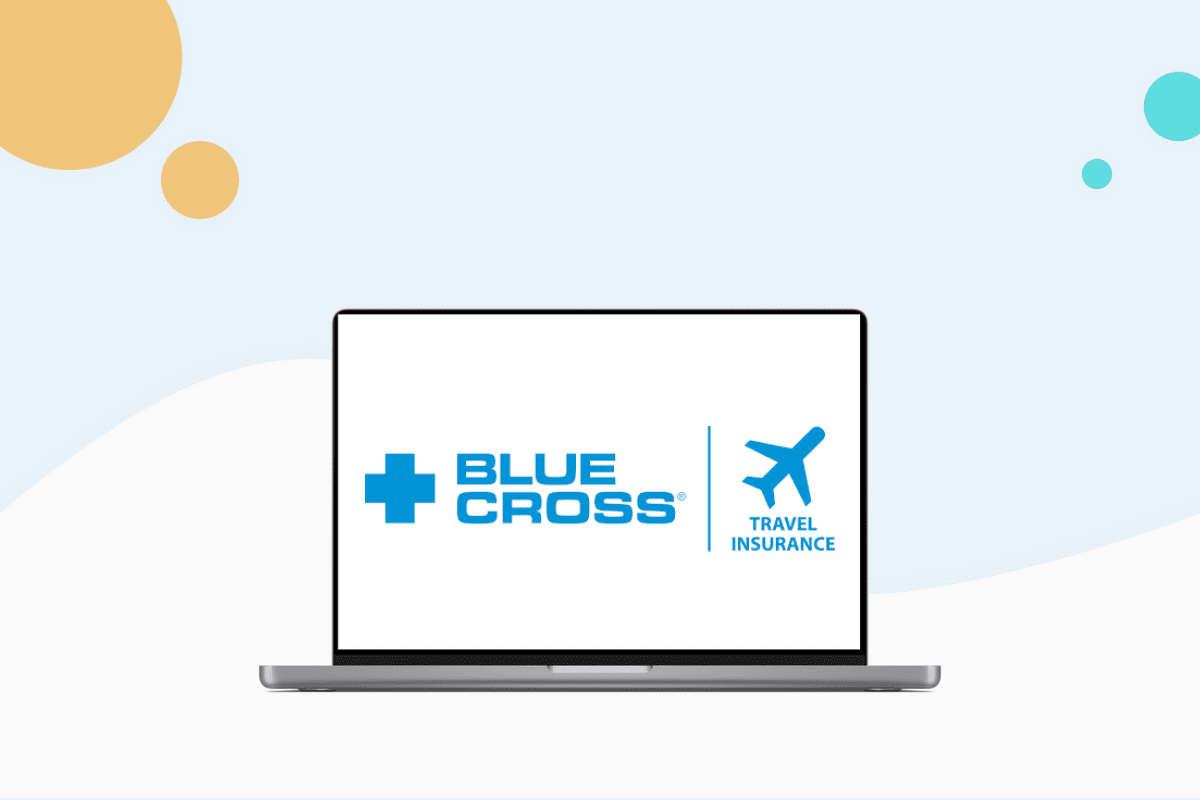When planning a trip, travel insurance is essential for peace of mind. Blue Cross offers various travel insurance plans, but understanding the costs associated with their coverage is crucial. This comprehensive guide will explore how much Blue Cross travel insurance costs, the factors influencing these costs, and how to choose the right plan for your needs.
Understanding Blue Cross Travel Insurance
What Is Blue Cross Travel Insurance?
Blue Cross provides travel insurance designed to cover various risks associated with traveling. Their plans offer protection for medical emergencies, trip cancellations, lost baggage, and more. Blue Cross is known for its reliable coverage and strong customer service.
Types of Blue Cross Travel Insurance
Single Trip Insurance
This plan covers one specific trip. It’s ideal for travelers who make occasional journeys.
Annual Multi-Trip Insurance
Designed for frequent travelers, this plan covers multiple trips within a year. It’s convenient and often more cost-effective for those who travel regularly.
Business Travel Insurance
Tailored for business travelers, this plan includes coverage for business-related risks such as trip cancellations and interruptions.
Student Travel Insurance
This plan is for students studying abroad. It provides coverage for medical emergencies and other travel-related issues while studying.
Factors Influencing the Cost of Blue Cross Travel Insurance
1. Trip Duration
Short Trips
For short trips, such as a weekend getaway, the cost is generally lower. Premiums are calculated based on the length of the trip.
Long Trips
Longer trips, such as extended vacations or multiple weeks abroad, will cost more. The extended coverage period increases the premium.
2. Destination
Domestic vs. International Travel
Traveling within your home country typically costs less than international travel. International trips often involve higher premiums due to increased risks and costs.
High-Risk Destinations
Traveling to high-risk destinations may increase the cost. Areas with higher medical expenses or political instability can impact premiums.
3. Age and Health
Age
Older travelers often face higher premiums. Insurance companies consider age a risk factor, as older individuals may be more likely to require medical care.
Health Conditions
Pre-existing health conditions can affect the cost. Coverage for these conditions may require higher premiums or additional documentation.
4. Coverage Levels
Basic Coverage
Basic plans cover essential risks like medical emergencies and trip cancellations. They are usually more affordable.
Comprehensive Coverage
Comprehensive plans include extensive coverage such as emergency evacuations, high medical limits, and baggage protection. These plans generally cost more.
5. Deductibles and Copayments
Higher Deductibles
Choosing a higher deductible can lower your premium. However, you will pay more out-of-pocket before the insurance coverage kicks in.
Lower Deductibles
Lower deductibles result in higher premiums but reduce the amount you pay before the insurance starts covering expenses.
Cost Examples of Blue Cross Travel Insurance
1. Single Trip Insurance
Domestic Travel
For a one-week domestic trip, the cost might range from $50 to $150. The exact price depends on the coverage level and your age.
International Travel
A one-week international trip could cost between $100 and $300. The premium varies based on the destination and your health.
2. Annual Multi-Trip Insurance
Domestic Coverage
Annual coverage for multiple domestic trips might cost between $200 and $500. This plan is more economical if you travel frequently within the year.
International Coverage
For international travel, annual multi-trip insurance can range from $400 to $1,000. The cost depends on the frequency of trips and the level of coverage.
3. Business Travel Insurance
Domestic Business Trips
Insurance for domestic business trips may cost between $100 and $250 per trip. Coverage includes business-specific risks and travel needs.
International Business Trips
For international business travel, premiums could range from $250 to $600. Costs vary based on the length of the trip and destination.
4. Student Travel Insurance
Short-Term Study Abroad
For students studying abroad for a semester, coverage might cost between $200 and $400. This plan includes medical and travel-related protection.
Long-Term Study Abroad
Longer study programs can cost between $500 and $1,000. Coverage for extended periods and higher medical limits contribute to the cost.
see also:Will My Health Insurance Cover Me in Another Country?
Tips for Finding Affordable Blue Cross Travel Insurance
1. Compare Plans
Use Online Comparison Tools
Online tools allow you to compare different plans and prices. This helps you find the best deal based on your coverage needs.
Review Coverage Details
Ensure that you understand what is included in each plan. Sometimes a slightly higher premium provides significantly better coverage.
2. Consider Your Coverage Needs
Assess Your Risks
Evaluate your travel risks to choose the right plan. If you need extensive medical coverage, opt for a comprehensive plan.
Choose the Right Deductible
Select a deductible that fits your budget. Higher deductibles reduce premiums but increase out-of-pocket costs.
3. Look for Discounts
Group Discounts
Some insurers offer discounts for groups or families. Check if Blue Cross provides any such options.
Frequent Traveler Discounts
Frequent travelers may qualify for discounts on annual multi-trip plans. Explore available discounts to reduce premiums.
Customer Experiences with Blue Cross Travel Insurance
1. Positive Feedback
Reliable Coverage
Many customers praise Blue Cross for reliable coverage and comprehensive protection. The ease of filing claims and responsive customer service are often highlighted.
Customer Support
Blue Cross is known for its effective customer support. Travelers appreciate the 24/7 assistance and helpful responses during emergencies.
2. Negative Feedback
Premium Costs
Some customers find the premiums higher compared to other providers. It’s essential to compare costs and coverage to ensure you get good value.
Claims Processing
A few travelers have reported delays in claims processing. Providing complete documentation can help expedite the process.
How to Choose the Right Plan
1. Determine Your Coverage Needs
Assess Travel Risks
Consider your travel itinerary, health condition, and destination risks. Choose a plan that covers your specific needs.
Select Appropriate Coverage Levels
Decide between basic and comprehensive coverage based on your risk factors and budget.
2. Get Quotes and Compare
Request Quotes
Obtain quotes from Blue Cross for various plans. Compare these quotes with other insurers to ensure competitive pricing.
Compare Coverage Details
Review the coverage details to understand what is included. Ensure that the plan meets your needs without paying for unnecessary features.
3. Read Reviews and Seek Recommendations
Customer Reviews
Check online reviews for feedback from other travelers. Reviews can provide insights into customer experiences and satisfaction.
Consult Insurance Advisors
If you’re unsure, consult with insurance advisors. They can help you choose the right plan based on your requirements and budget.
FAQs
1. How Much Does Blue Cross Travel Insurance Cost?
Costs vary based on trip duration, destination, age, and coverage level. For example, a one-week international trip might cost between $100 and $300.
2. What Factors Affect the Cost of Blue Cross Travel Insurance?
Factors include trip duration, destination, age, health, and coverage levels. Longer trips and international travel generally cost more.
3. Can I Find Discounts on Blue Cross Travel Insurance?
Yes, discounts may be available for groups, families, and frequent travelers. Check with Blue Cross for any applicable discounts.
4. How Do I Choose the Right Blue Cross Travel Insurance Plan?
Assess your coverage needs, compare plans and prices, and consider customer reviews. Choose a plan that offers the best value for your requirements.
5. Is Blue Cross Travel Insurance Worth the Cost?
Blue Cross travel insurance provides reliable coverage and customer support. Whether it’s worth the cost depends on your specific needs and budget.
Conclusion
Understanding how much Blue Cross travel insurance costs involves evaluating various factors such as trip duration, destination, age, and coverage levels. By comparing plans and considering your coverage needs, you can find an affordable option that provides the protection you need. Blue Cross offers reliable coverage with competitive pricing, but it’s essential to explore different plans and consult with advisors to ensure you get the best value. Safe travels and enjoy peace of mind with the right travel insurance!





















